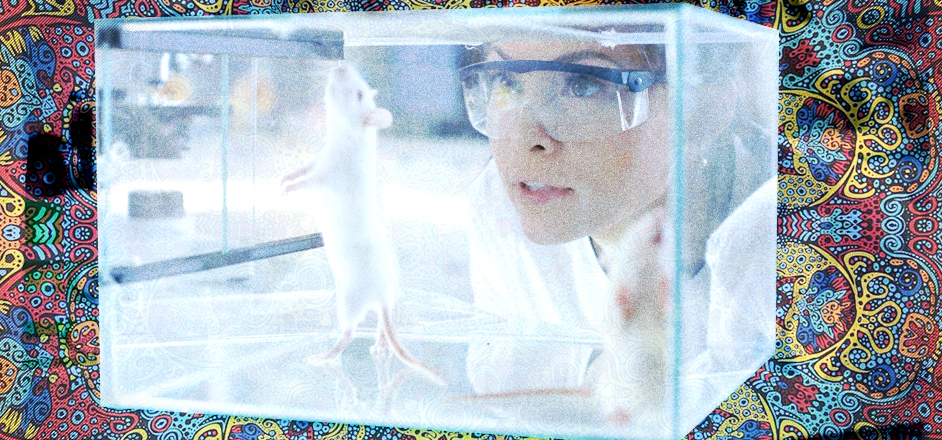Researchers administering ketamine to mice recently discovered something extremely strange — the drug only affected mood when dispensed by men.
“If this is a meaningful phenomenon, it calls into question years of experiments on ketamine and mice,” explains Dr. Roman Langston, medical director of Vitalitas Ketamine Clinic in Denver, Colorado via phone. “It would call into question years of studies on antidepressants.”
At ketamine infusion clinics like Langston’s, patients can have the powerfully mood-lifting drug mainlined directly into their bloodstream. Countless successful case studies and ever-emerging research indicate the hallucinogen may be a ground-breaking new frontier for mental health issues like depression, anxiety, OCD, PTSD, complex migraines and pain disorders.
However, no one really understands exactly how ketamine interacts with the brain, and this new study only serves to deepen the mystery.
The strange development first appeared at the University of Maryland, after neuroscientist Polymnia Georgiou was asked to run some experiments for a male colleague while he was out of town. Georgiou followed the colleague’s protocol exactly, yet found her results differed drastically from her male coworker’s.
In the standard antidepressant experiment used, known as the forced-swim test, researchers inject healthy mice with a drug, place them into a tank of water and measure how long they swim before giving up. The hopeless little mice that become motionless sooner are meant to parallel depression-like symptoms.
A wealth of research shows that mice treated with antidepressants will swim for longer than their undrugged counterparts. Mice treated with ketamine will do the same.
At least, that’s what Georgiou’s male colleagues found. When she treated the mice with ketamine, however, they didn’t swim any longer than those treated with a placebo.
The researchers then expanded upon this result, performing the same test with 4 male researchers and 4 female researchers. They found the ketamine only affected mice’s moods when administered by men.
Suspecting smell might be making the difference, they put the fuzzy creatures in a scent-proof fume hood. When the mice couldn’t smell who was injecting them, the effects of ketamine were completely eliminated.
It seemed that the smell of a man was necessary for the drug to work.
So they put a man’s t-shirt into the fume hood, too. With male musk surrounding them again, mice treated with ketamine swam for longer than the control group did.
Antidepressant researcher Ronald Duman at Yale University has repeated these same experiments with double the researchers. Once again, when women gave the mice ketamine, they didn’t respond to the drug.
“In our practice, we have both male and female providers,” Langston says, “and I’ve seen an equal response whether it’s a male or female provider. In humans, I don’t have any inkling of the same sex-linked response.”
However, it’s relatively rare for animal responses to drugs to differ so drastically from human’s.
“We test drugs on animals because in many ways they do mimic humans in their response,” Langston says. “Otherwise, we wouldn’t be able to take anything away from the results.”
Of course, there are significant disparities in the biologies of humans and animals.
“Animals are instinctual and humans aren’t,” Langston explains. “The senses in animals are so different from humans, they can be exquisitely sensitive to certain characteristics or smells, whereas humans are dull to those sort of things.”
Then again, there’s the possibility that humans are more influenced by primitive instincts than we’re aware of. While we might like to consider ourselves highly-civilized creatures, there’s a chance we don’t have as much control over our primal systems as we’d like to think.
This new research only serves as a reminder that so much of the human mind is still not understood.
“The mind is the final frontier. We understand it structurally, but that’s not where the money is,” Langston says. “On a biochemical level, we don’t understand what causes depression, bipolar disorder, anxiety or PTSD. With so many mental health disorders, we don’t understand what’s happening on a molecular level.”
While much of the mind is still a mystery, we’re taking steps to solve this puzzle every day — one strange study at a time.



Leave a Reply